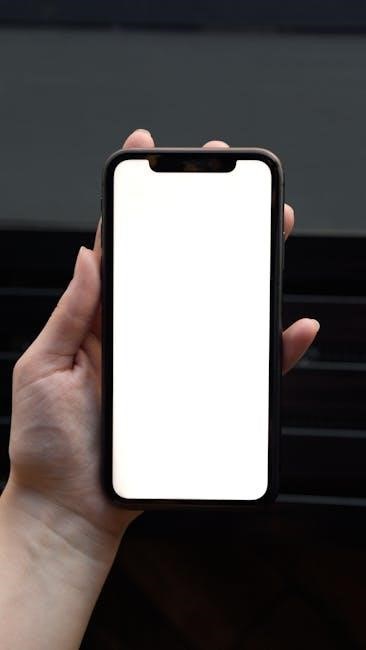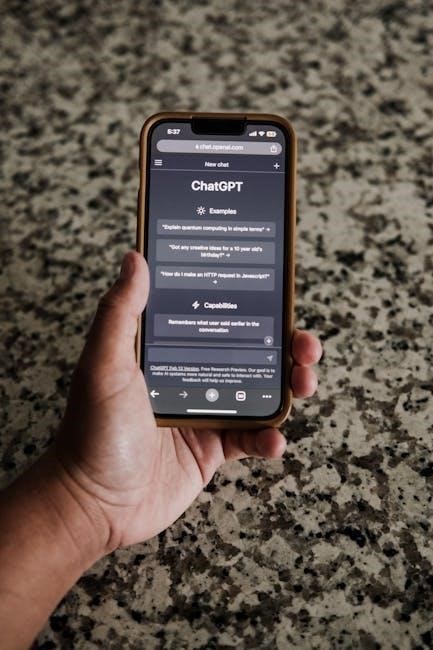Overview of the MLTSS NJ Program
The MLTSS NJ Program is a Medicaid initiative providing long-term care services to elderly and disabled individuals. It offers community-based supports, promoting independence and quality of life through personalized care plans and streamlined application processes.

Managed Long Term Services and Supports (MLTSS) is a Medicaid program designed to deliver comprehensive, long-term care services to eligible individuals in New Jersey. It integrates medical, social, and supportive services to ensure participants receive coordinated care tailored to their specific needs. MLTSS aims to promote independence, quality of life, and community-based care, reducing reliance on institutional settings. The program is part of New Jersey’s Medicaid initiative under NJ FamilyCare, offering services such as home health care, adult day care, and personal assistance. Eligible individuals, including the elderly and those with disabilities, can access these services through approved managed care organizations. MLTSS emphasizes person-centered care planning, ensuring that participants’ preferences and goals are prioritized. By streamlining service delivery, MLTSS helps individuals maintain their independence while addressing their medical and personal care needs effectively.
Key Benefits of the MLTSS Program
The MLTSS Program offers numerous benefits to eligible participants, enhancing their overall well-being and quality of life. One of the primary advantages is the provision of comprehensive, coordinated care, ensuring that all medical, social, and supportive needs are met seamlessly. Participants gain access to a wide range of services, including home health care, adult day care, personal assistance, and community-based supports, allowing them to live independently in their own homes or preferred community settings rather than in institutional facilities. Additionally, the program emphasizes person-centered care planning, where individual preferences and goals are prioritized, ensuring tailored support. MLTSS also streamlines service delivery, reducing administrative burdens and providing a more efficient experience for participants. By focusing on holistic care, MLTSS helps individuals maintain their independence, dignity, and overall quality of life while addressing their medical and personal care needs effectively. This structured approach ensures that participants receive the support they need to thrive in their communities.

Eligibility Criteria for MLTSS NJ
Eligibility for MLTSS NJ is based on income, assets, and medical need. It targets individuals requiring long-term care, including the elderly, disabled, and those with chronic conditions needing supportive services to maintain independence.

Income and Asset Requirements
To qualify for MLTSS NJ, applicants must meet specific income and asset thresholds set by Medicaid. Generally, income must not exceed 100% of the Federal Poverty Level (FPL), though this may vary by program specifics. Assets, such as savings and property, are also evaluated, with exemptions for primary residences and essential items. For individuals with incomes slightly above the limit, certain expenses like medical costs can be deducted to qualify. Married couples may have higher limits due to spousal impoverishment protections. It’s important to note that income and asset rules can change annually, so checking the most recent guidelines is crucial for accurate eligibility determination. Applicants are advised to consult local resources or a Medicaid eligibility specialist for detailed assessment and guidance.
Medical Need for Long-Term Care
To qualify for the MLTSS NJ Program, applicants must demonstrate a medical need for long-term care. This involves a clinical evaluation to assess their functional limitations and health conditions. The assessment determines if an individual requires assistance with activities of daily living (ADLs), such as bathing, dressing, or eating, or if they need skilled nursing care. Eligibility is typically based on a nursing home level of care (NHLOC) determination, meaning the individual’s needs are comparable to those requiring institutional care. The evaluation process may include input from healthcare providers, social workers, and other professionals. Applicants must also meet specific criteria outlined by Medicaid, which may include cognitive impairments, chronic illnesses, or disabilities that significantly impact daily functioning. The clinical assessment is conducted by authorized professionals through local agencies, ensuring accurate and fair eligibility decisions. This step is critical to aligning care services with the individual’s specific needs and promoting optimal outcomes.
Target Population for MLTSS
The MLTSS NJ Program primarily serves individuals who require long-term services and supports to live independently in their communities. This includes elderly residents, persons with disabilities, and those with chronic illnesses needing ongoing care. The program is designed for individuals aged 21 and older who meet Medicaid eligibility criteria and require a level of care typically provided in institutional settings. Children under 21 may also qualify if they meet specific medical and financial requirements. The program emphasizes supporting individuals with significant functional limitations, such as those needing assistance with daily activities or requiring skilled nursing care. By targeting this population, MLTSS aims to enhance quality of life, prevent unnecessary institutionalization, and provide cost-effective, person-centered care solutions. Eligibility is determined through clinical assessments and financial evaluations, ensuring that services are tailored to the unique needs of each participant. This approach aligns with New Jersey’s commitment to fostering independence and well-being for vulnerable populations.

The Application Process for MLTSS NJ
The MLTSS NJ application process involves eligibility screening, document submission, and clinical assessment. Applicants must contact their local County Social Service Agency or Area Agency on Aging to initiate the process and receive guidance.

Required Documents for the Application

To apply for MLTSS NJ, specific documents are necessary to determine eligibility. These include proof of income, such as recent pay stubs or Social Security award letters, and asset documentation, like bank statements or property deeds. Additionally, applicants must provide medical records that outline their long-term care needs, including any diagnoses or physician recommendations. For those applying under Medicaid, a completed NJ FamilyCare Application form is required. If an authorized representative is assisting, a Designation of Authorized Representative Form must also be submitted. Proper documentation ensures accurate assessment of eligibility and expedites the application process. All forms and documents can be downloaded from the official New Jersey government website or obtained through local social service offices. Ensuring all required documents are complete and accurate is crucial for a smooth application experience.
How to Download the MLTSS NJ Application Form

Assistance with Completing the Application

Applicants can receive assistance in completing the MLTSS NJ application from authorized representatives, such as family members, legal guardians, or attorneys. The Designation of Authorized Representative Form must be completed if someone else is assisting with the application. Additionally, local County Area Agency on Aging (AAA) and Aging and Disability Resource Connection (ADRC) offices provide guidance and support throughout the process. These agencies can help with understanding eligibility requirements, gathering necessary documents, and submitting the application. For further assistance, applicants can contact their local County Welfare Agency or call the toll-free Member Services number at 1-844-444-4410 (TTY 711). This support ensures that applicants can navigate the process smoothly and complete their applications accurately. Assistance is also available for individuals with disabilities or language barriers, ensuring equal access to the program benefits.